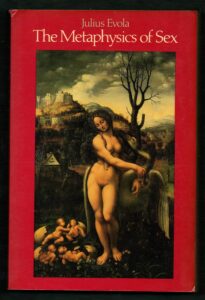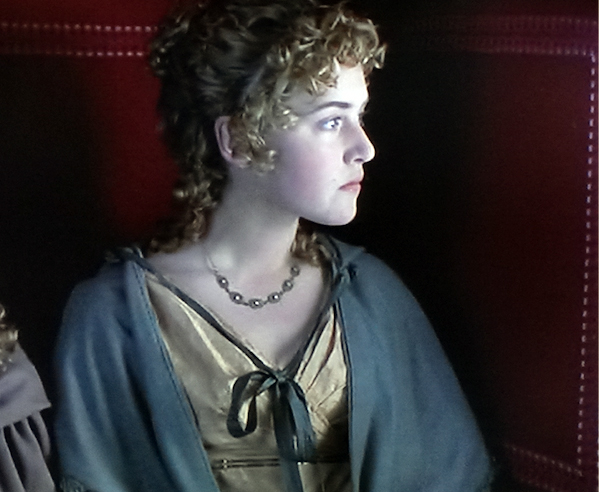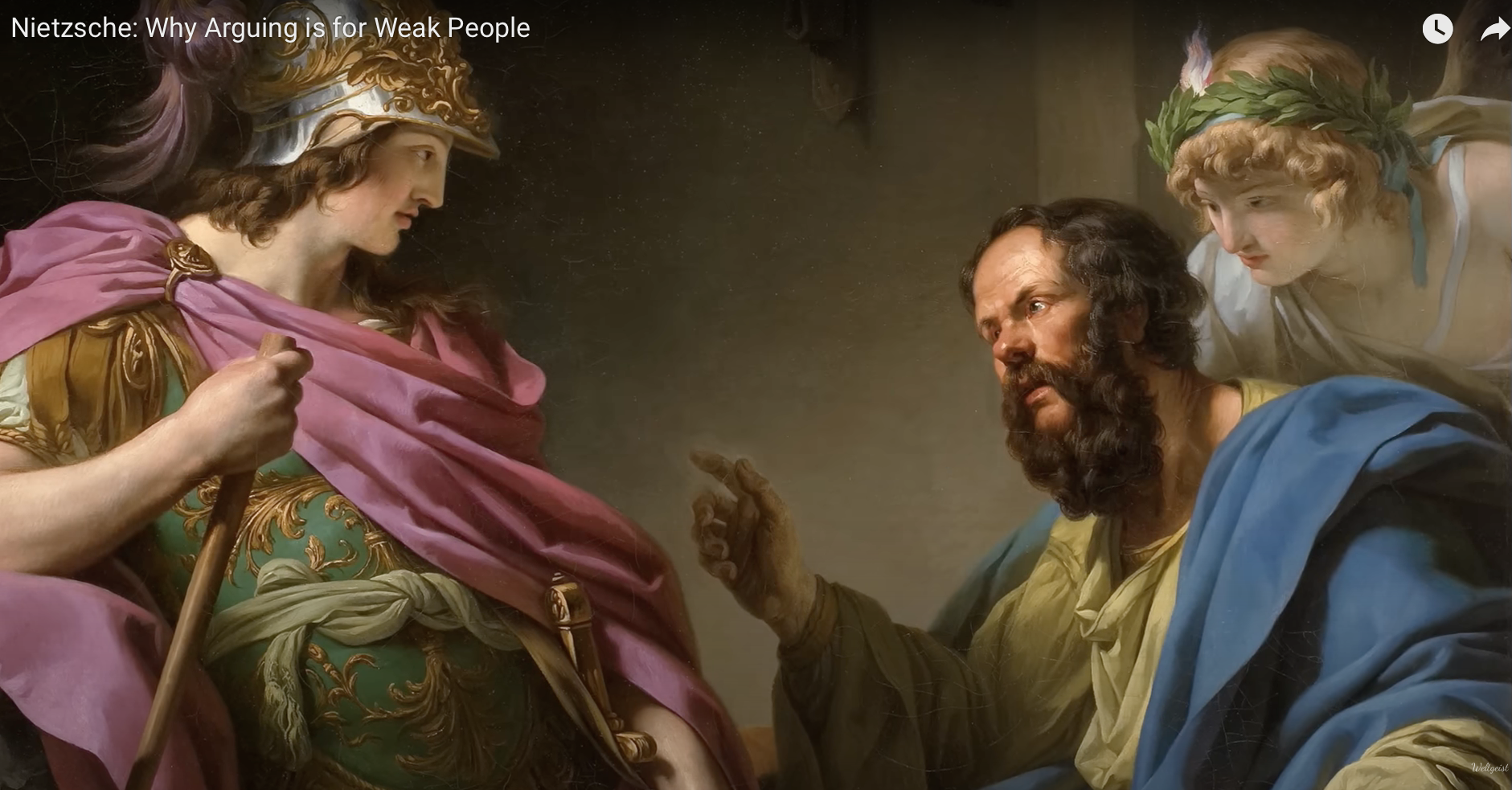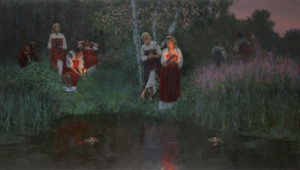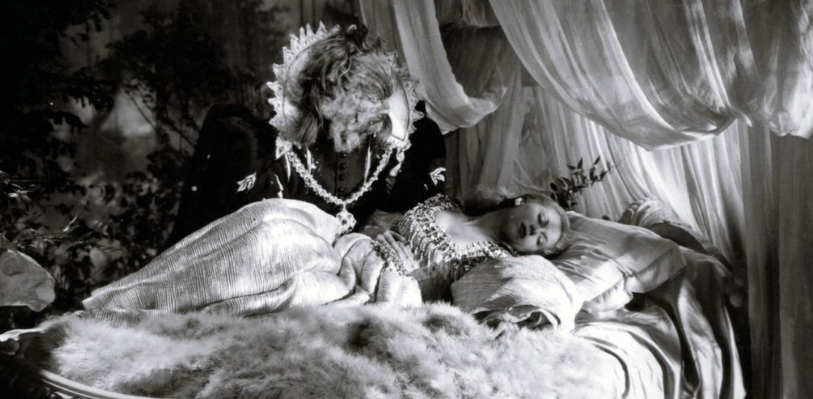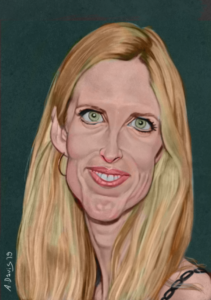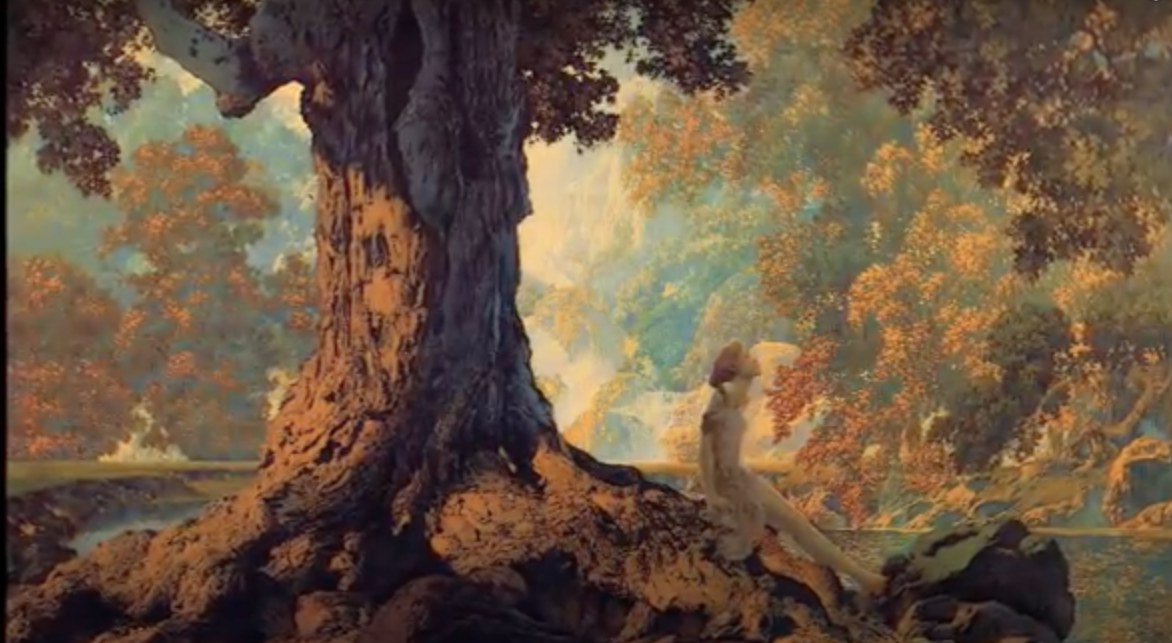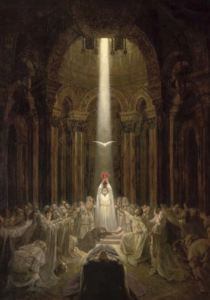of Germanic racial care by medieval Christianity (4)
by Hans F. K. Günther
For the racial cultivation of the Germanic peoples, the medieval church teachings not only abolished the barrier of oppression between free and unfree, but above all degraded marriage, which had represented something particularly venerable within the divine order of Indo-European culture. According to Paul (1 Corinthians 7:2), marriage was there to help avoid the souring of people; but more sacred than married life was celibacy and mortification of the senses (1 Corinthians 7:1). This degradation of marriage can be traced from the early medieval church fathers through the entire Middle Ages. The rites of monks and nuns were considered the highest morality, and a doctrine of the ‘immaculate conception’ – even if this doctrine was not as easy to interpret as the layman thought it would be – could mean nothing other than that, conversely, every conception by a woman of his people was to be regarded as tainted. An exception in the evaluation of marriage is Clement of Alexandria (died around 220), who, for the first time after the spread of Christianity, again established marriage as a duty towards the people and state, as it was among the peoples of the Indo-European language, and who even saw the purpose of marriage as the procreation of well-behaved children, the euteknia. But here, and partly in Tertullian’s views on marriage, Indo-European thought still comes to the fore in an indirect and weakened form, the Hellenic and Hellenistic spirit of the Stoa and the writings of the Hellenic Plutarch, who was still essentially Indo-European in his views.
The degradation of marriage was logically linked to the degradation of women. It has often been claimed in the past that Christianity was the first to teach the Germanic peoples respect for women. In 1913, the church historian Boehmer attributed things to the Germanic peoples such as various kinds of fornication, respect and enslavement of the female sex and other shameful acts – all of which were traits of human behavior that were demonstrably only introduced into Germania from the south and east. An expert on the Germanic world such as Neckel was right to reject such opinions as untenable in his work Love and Marriage among the Pre-Christian Germanic Peoples (1934). In fact, medieval Christianity caused a wave of denigration of the female sex, while the woman as mistress of the house (déspoina, domina, matrona) had occupied a low position among all Indo-Europeans, as long as the Nordic racial soul was dominant in their peoples, in the reality of everyday life a much more respected position than the various legal records of the peoples of the Indo-European language would suggest. Among the Germanic peoples there was also the view that women had ‘something sacred and prescient’ (Tacitus: aliquid sanctum et providum). ‘They do not disdain their nature and pay attention to their answers,’ is how Tacilus (Germania, 8) describes the respect that Germanic men had for women.
In church doctrine, this is opposed by the mulier tacent in eeclessin (1 Corinthians 14:34/35) and the duty of women to cover their heads during church services, because otherwise they could arouse lust (1 Corinthians 11:5 and 6). For both church fathers, woman, to whom Paul (1 Timothy 2:14) had ascribed the origin of sin, appears as a templum aedificatum super oloacum, as the ‘mother of sin’ and ‘source of sin’, and the Council of Macon, which was held in the 7th century under the Merovingian Frankish kings, discussed whether woman should be regarded as a human being at all. How much abomination the counterhammer, judging according to medieval church doctrine, ascribes to the female sex can be read in this legal document.
The innate veneration of women by the descendants of the Germanic tribes of the early Middle Ages was able to have an impact in the High Middle Ages in the veneration of the Virgin Mary, and from such expressions of the veneration of women it found its way into lovemaking and into that dolce stil nuovo, of which Dante’s poem Vita Nuova may be the finest example. Here the blonde Dante sang of the blonde Beatrice out of a characteristically Nordic feeling of love. The veneration of women that broke through again could now hardly be expressed as simply and grandly as it had been among the Germanic tribes, but rather took on a more or less affected character or experienced a certain romantic exaggeration; but above all: this veneration of women was on the edge of an abyss, the aroused feeling of sin, the fear of the air of the flesh, which for church teachings constituted the essential aspect of the relationship between the sexes. Hence, among the minnesingers, who in their youth had sung of the joy of ‘this world’ and of love between the sexes, so often in all of them the fearful change to the rejection of ‘Lady World’. In church art, ‘Lady World’ was represented as a woman, alluring from the front, tempting to sin, and full of noble animals behind. When the world (for the Germanic people Midgard, the cultivated homeland, the field of all the nurturing industriousness of man and of all the national struggle with the god against Utgard, the epitome of everything anti-divine) as the world understood by the Germanic people as Midgard, was represented by the church as this ‘Lady World’, when Luther also saw in nature only a devilish power that seduces and mocks man, a ‘woman of honor who may bark against her god’, the source of that feeling of life from which the Germanic racial cultivation had sprung.
The Jewish-Christian world of faith thus attempted to separate the Germanic people from the context of the world order and relegated them to an afterlife in comparison to which ancestral ‘earthly values’ lost their meaning. Little by little, the whole attitude to life of the medieval West was thus reduced precisely in those who were capable of absorbing spiritual values and were willing to live according to these values. The coarser-minded people lived without deeper struggles of conscience in the various compromises between church doctrine and inherited nature that were possible and tolerated by the church. However, a decline in the overall attitude to life in the Middle Ages is undetectable and continues until, in the humanism of the Renaissance, the best of the Western peoples sensed the ancient Indo-European attitude to life again through the testimonies of Hellenic and Roman intellectual life, and until later, in the era of Winckelmann, Goethe, Schiller and Wilhelm von Humboldt, the Indo-European spirit was once again ignited by the great testimonies of the past, and until finally, with the Romantic era, native Germanic culture was rediscovered. But at the time of the revival, the Indo-Germanic and Germanic sense of what is humanly noble was no longer valid in the West, as a result of church teachings, no longer the focus on the noble, the will to improve life, to cultivate all growth values, but rather a tendency towards a stunted life prevailed in all spiritual expressions, precisely because a stunted life was a better preparation for the afterlife in this world of afflictions. According to such teachings, people should not feel at all secure in this world.

